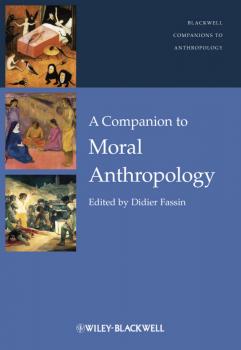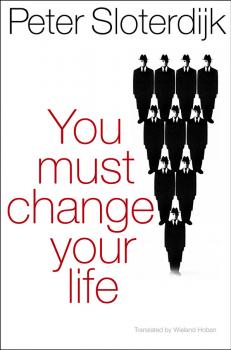Социология
Различные книги в жанре СоциологияDesertification, Land Degradation and Sustainability
Desertification offers a comprehensive overview of the subject and clearly emphasizes the link between local and global desertification processes and how past and current policy has affected arid environments and their populations. This text adequately applies the research undertaken during the last 15 years on the topic. Desertification has become increasingly politicized and there is a need to present and explain the facts from a global perspective. This book tackles the issues surrounding desertification in a number of ways from differing scales (local to global), processes (physical to human), the relationship of desertification to current global development and management responses at different scales. Desertification has been mainstreamed and integrated into other areas of concern and has consequently been ignored as a cross cutting issue. The book redresses this balance. Making use of much original data and information that has been undertaken by many scientists andpractitioners during the last decade in different parts of the world, Desertification, Land Degradation and Sustainability is organised according to the principles of adaptive management and hierarchy theory and clearly explains desertification within a framework of evolving and interacting physical and socio-economic systems. In addition to research data the book also draws from the National Action Plans of different countries, the IPCC Fourth Assessment on Climate Change and the Millennium assessments. Clearly structured throughout, the content of the book is organised at different scales; local, regional and global. It also specifically explains processes linking top-down and bottom- up interactions and has a strong human component. The historical, cultural and physical context is also stressed. Clearly organised into the following distinct sections: a) Concepts and processes b) Data c) Impacts d) Responses e) Case studies. This text is essential for anyone studying desertification as part of an earth and environmental science degree.
Concise Dictionary of Social and Cultural Anthropology
Practical and accessible, this dictionary is designed to enlighten those newly engaged in anthropological study or seeking a quick guide to the field. Fills a need for a beginner’s pocket guide to the far-reaching and complex field of anthropology, including over 800 detailed entries and the intellectual background of terms Written in plain, jargon-free language, for readers without extensive background in the field Features brief, conceptual definitions of terms, bibliographical references to anthropological classics, related works for background reading and further research The user-friendly format includes bold terms featured elsewhere in the book, extensive cross-references, and indexes of names, peoples, places and subjects Incorporates related terminology from allied fields such as sociology, economics and geography
A Companion to Chinese Archaeology
A Companion to Chinese Archaeology is an unprecedented, new resource on the current state of archaeological research in one of the world’s oldest civilizations. It presents a collection of readings from leading archaeologists in China and elsewhere that provide diverse interpretations about social and economic organization during the Neolithic period and early Bronze Age. An unprecedented collection of original contributions from international scholars and collaborative archaeological teams conducting research on the Chinese mainland and Taiwan Makes available for the first time in English the work of leading archaeologists in China Provides a comprehensive view of research in key geographic regions of China Offers diverse methodological and theoretical approaches to understanding China’s past, beginning with the era of established agricultural villages from c. 7000 B.C. through to the end of the Shang dynastic period in c. 1045 B.C.
A Companion to Moral Anthropology
A Companion to Moral Anthropology is the first collective consideration of the anthropological dimensions of morals, morality, and ethics. Original essays by international experts explore the various currents, approaches, and issues in this important new discipline, examining topics such as the ethnography of moralities, the study of moral subjectivities, and the exploration of moral economies. Investigates the central legacies of moral anthropology, the formation of moral facts and values, the context of local moralities, and the frontiers between moralities, politics, humanitarianism Features contributions from pioneers in the field of moral anthropology, as well as international experts in related fields such as moral philosophy, moral psychology, evolutionary biology and neuroethics
A Companion to Forensic Anthropology
A Companion to Forensic Anthropology presents the most comprehensive assessment of the philosophy, goals, and practice of forensic anthropology currently available, with chapters by renowned international scholars and experts. Highlights the latest advances in forensic anthropology research, as well as the most effective practices and techniques used by professional forensic anthropologists in the field Illustrates the development of skeletal biological profiles and offers important new evidence on statistical validation of these analytical methods. Evaluates the goals and methods of forensic archaeology, including the preservation of context at surface-scattered remains, buried bodies and fatal fire scenes, and recovery and identification issues related to large-scale mass disaster scenes and mass grave excavation.
You Must Change Your Life
In his major investigation into the nature of humans, Peter Sloterdijk presents a critique of myth – the myth of the return of religion. For it is not religion that is returning; rather, there is something else quite profound that is taking on increasing significance in the present: the human as a practising, training being, one that creates itself through exercises and thereby transcends itself. Rainer Maria Rilke formulated the drive towards such self-training in the early twentieth century in the imperative 'You must change your life'. In making his case for the expansion of the practice zone for individuals and for society as a whole, Sloterdijk develops a fundamental and fundamentally new anthropology. The core of his science of the human being is an insight into the self-formation of all things human. The activity of both individuals and collectives constantly comes back to affect them: work affects the worker, communication the communicator, feelings the feeler. It is those humans who engage expressly in practice that embody this mode of existence most clearly: farmers, workers, warriors, writers, yogis, rhetoricians, musicians or models. By examining their training plans and peak performances, this book offers a panorama of exercises that are necessary to be, and remain, a human being.
The Misguided Search for the Political
There has been a lively debate amongst political theorists about whether certain liberal concepts of democracy are so idealized that they lack relevance to ‘real’ politics. Echoing these debates, Lois McNay examines in this book some theories of radical democracy and argues that they too tend to rely on troubling abstractions – or what she terms ‘socially weightless’ thinking. They often propose ideas of the political that are so far removed from the logic of everyday practice that, ultimately, their supposed emancipatory potential is thrown into question. Radical democrats frequently maintain that what distinguishes their ideas of the political from others is the fundamental concern with unmasking and challenging unrecognized forms of inequality and domination that distort everyday life. But this supposed attentiveness to power is undermined by the invocation of rarefied models of political action that treat agency as an unproblematic given and overlook certain features of the embodied experience of oppression. The tendency of radical democrats to define democratic agency in terms of dynamics of perpetual flux, mobility and agonism passes over too swiftly the way in which objective structures of oppression are often taken into the body as subjective dispositions, leaving individuals with the feeling that they are unable to do little more than endure a state of affairs beyond their control. Drawing on the work of Adorno, Bourdieu and Honneth, amongst others, McNay argues that in order to make good the critique of power, radical democratic theory should attend more closely to a phenomenology of negative social experience and what it can reveal about the social conditions necessary for effective political agency.
Case Studies in Social Work Practice
A practical approach to understanding social work concepts in action that integrates theory and practice In this updated edition of the classic social work text, students and instructors have access to real-world demonstrations of how social work theories and concepts can be applied in practice. The case studies in this book bridge the gap between the classroom and the field by allowing students to discover the when, why, and how of social work principles. Brief but comprehensive topic overviews are brought to life by case studies that apply general theories to the work of social work. Each of the book's nine sections cover an essential area of social work, encompassing the micro, mezzo, and macro levels Highly readable explanations are followed by 3-5 case studies relating theory to the living practice of real social workers Topics include Generalist Practice; Family Therapy, Treatment of Adults; and Diversity Approaching each topic from a variety of different theoretical bases, this essential text allow students to learn by concrete example, experiencing social work concepts as they are applied in the profession today.
Does the Richness of the Few Benefit Us All?
It is commonly assumed that the best way to help the poor out of their misery is to allow the rich to get richer, that if the rich pay less taxes then all the rest of us will be better off, and that in the final analysis the richness of the few benefits us all. And yet these commonly held beliefs are flatly contradicted by our daily experience, an abundance of research findings and, indeed, logic. Such bizarre discrepancy between hard facts and popular opinions makes one pause and ask: why are these opinions so widespread and resistant to accumulated and fast-growing evidence to the contrary? This short book is by one of the world’s leading social thinkers is an attempt to answer this question. Bauman lists and scrutinizes the tacit assumptions and unreflected-upon convictions upon which such opinions are grounded, finding them one by one to be false, deceitful and misleading. Their persistence could be hardly sustainable were it not for the role they play in defending – indeed, promoting and reinforcing – the current, unprecedented, indefensible and still accelerating growth in social inequality and the rapidly widening gap between the elite of the rich and the rest of society.
Why Some Politicians Are More Dangerous Than Others
Politicians and the political process, even in ostensibly democratic countries, can be deadly. James Gilligan has discovered a devastating truth that has been «hiding in plain sight» for the past century – namely, that when America's conservative party, the Republicans, have gained the presidency, the country has repeatedly suffered from epidemics of violent death. Rates of both suicide and homicide have sky-rocketed. The reasons are all too obvious: rates of every form of social and economic distress, inequality and loss – unemployment, recessions, poverty, bankruptcy, homelessness also ballooned to epidemic proportions. When that has happened, those in the population who were most vulnerable have «snapped», with tragic consequences for everyone. These epidemics of lethal violence have then remained at epidemic levels until the more liberal party, the Democrats, regained the White House and dramatically reduced the amount of deadly violence by diminishing the magnitude of the economic distress that had been causing it. This pattern has been documented since 1900, when the US government first began compiling vital statistics on a yearly basis, and yet it has not been noticed by anyone until now except with regard to suicide in the UK and Australia, where a similar pattern has been described. This book is a path-breaking account of a phenomenon that has implications for every country that presumes to call itself democratic, civilized and humane, and for all those citizens, voters and political thinkers who would like to help their country move in that direction.









